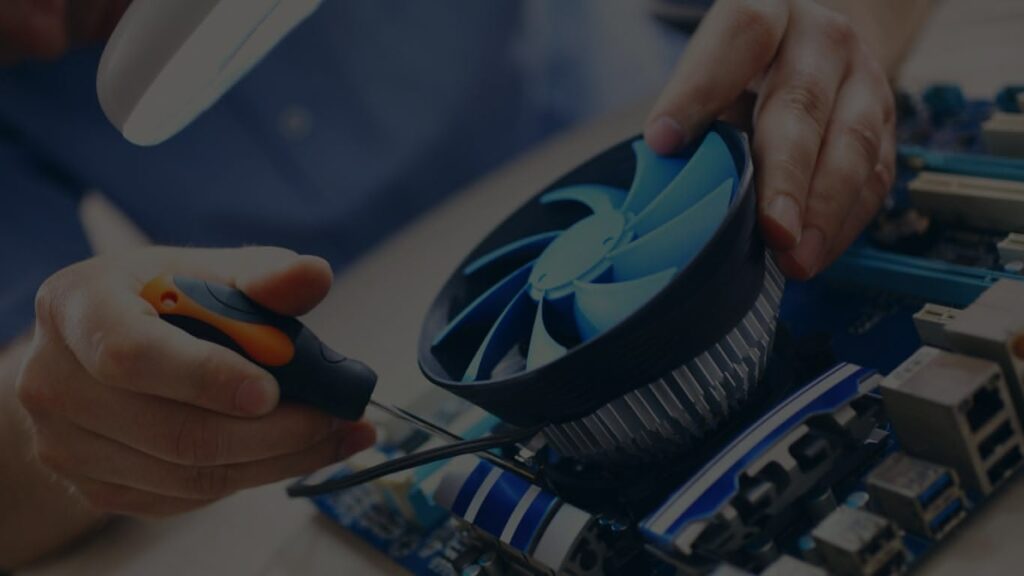Is your computer giving you a hard time? It could be lagging, freezing, or throwing error messages at you. You’re probably thinking: “Can I fix this myself, or is it time to call in the experts? We all rely heavily on our computers, and when they malfunction, it can feel like a major setback. Even with some basic knowledge related to computers, not all problems are simple enough for you to tackle without help.
In this article, we’ll check the benefits and challenges of DIY repairs versus calling a professional. Geeks On Site can help you determine when it’s best to go the DIY route and when to reach out.
Challenges of DIY Computer Repair
While DIY repairs come with their benefits, they also come with a few risks:
- Risk of Further Damage: If you don’t have the right tools or knowledge, you could make the problem worse. For example, improper handling of hardware can damage sensitive components, or using the wrong software might make things more complicated.
- Time-Consuming Some repairs, especially if they involve troubleshooting unknown issues, can take up a lot of your time. If you’re not familiar with the problem, it can become frustrating and drag on longer than expected.
- Limited Expertise: Certain computer issues, especially those that involve complex hardware or deep system errors, may be beyond your ability to fix. If you’re not experienced, you may end up missing key details or steps.
The Benefits of Hiring a Professional Computer Repair Technician
While DIY repairs might work for some minor problems, professional computer technicians at Geeks On Site bring several advantages to the table:
- Expertise and Efficiency: Professional repair technicians have the knowledge and experience to fix complex problems quickly and accurately. They can diagnose issues faster, saving you time and hassle.
- Avoiding Further Damage A professional technician has the right tools and training to handle your computer safely, ensuring that no additional harm is done to your machine during the repair process.
- Security and Warranty Protection: If your computer is under warranty, doing a DIY repair may void it. Professionals, however, know how to handle repairs while keeping your warranty intact. They also follow safety protocols, protecting your data during repairs.
- Specialized Tools and Resources Technicians have access to advanced diagnostic tools and specialized equipment that might not be available to you. This ensures that they can fix the problem more effectively.
When to DIY and When to Call a Professional
Here’s a quick guide to help you decide when to handle the repair yourself and when to call a pro:
- DIY Repairs:
- Slow computer performance (e.g., running disk cleanup, updating software)
- Software issues or bugs (e.g., updating programs or reinstalling apps)
- Hardware upgrades (e.g., adding RAM, replacing a battery)
- Cleaning of basic internal and external components
- Call a Professional:
- Major hardware failures (e.g., motherboard, graphics card issues)
- Data recovery (e.g., lost or corrupted files)
- Complex malware or virus infections
- Operating system failures or crashes
FAQs
How much does a computer technician charge?
Charges vary depending on the service and the complexity of the issue.
What should I do before sending my computer for repair?
Back up all your important files and remove any sensitive data. Also, note down any error messages or problems you’ve encountered.
How do I choose the right computer repair technician?
Look for certified professionals with positive reviews. Make sure they offer a warranty for their services and that they have experience with your specific issue.
What is the average cost to fix a PC?
The cost ranges from basic to high depending on the problem. Complex issues may cost more.
Can I fix my computer myself if it’s under warranty?
It’s best to check your warranty terms before attempting any DIY repairs, as opening the device may void it. Professional repairs usually maintain your warranty.
Conclusion
Ultimately, deciding between a DIY repair and hiring a professional comes down to the severity of the issue, your comfort level with technology, and the potential risks involved.DIY repairs are great for minor issues and can be a valuable learning experience. Still, for more complicated or critical problems, it’s always safer and more effective to call in a pro.





